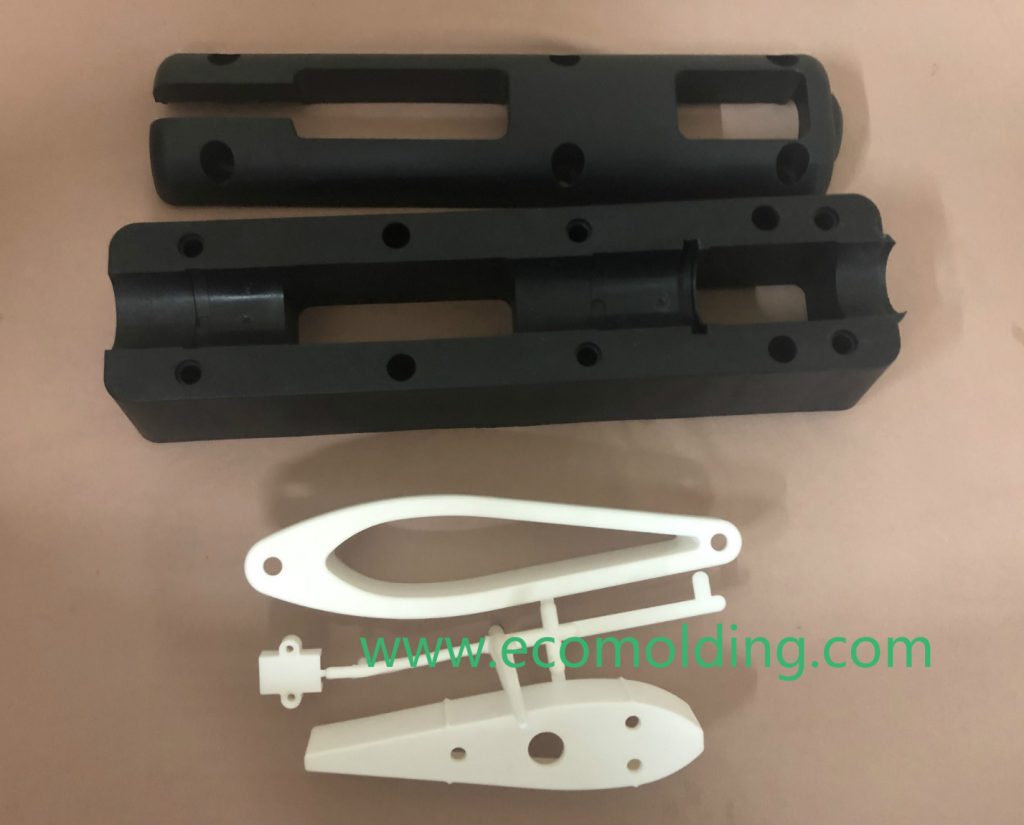Nylon (polyamide, abbreviated as PA) refers to a plastic composed of polyamide resins, which can be obtained by polycondensation of diamines and dibasic acids, or by ring-opening polymerization of lactams formed by dehydration of amino acids. Different from PS, PE and PP, PA does not gradually soften with the rise of temperature, but softens within a narrow temperature range close to the melting point that is obvious, i.e., 215-225 °C. It flows as soon as the temperature is reached.

There are many varieties of PA, mainly including PA6, PA66, PA610, PA11, PA12, PA1010, PA612, PA46, PA6T, PA9T and MXD-6 aromatic polyamide, etc., and the commonly used ones are PA6, PA66, PA610, PA11, and PA12.
The nylon engineering plastics all appear as keratinous, tough, super bright, white (or milky white) or yellowish, and transparent or translucent crystalline resins, which are easily colored into any color. As an engineering plastic, the molecular weight of nylon generally ranges from 1.5 to 30,000. Their density is slightly greater than 1. Density: 1.14-1.15g/cm3; tensile strength: > 60.0Mpa; elongation: >30%; bending strength: 90.0 MPa; notched impact strength: (KJ/m2) > 5. The shrinkage rate of nylon is between 1% and 2%. Pay attention to the dimensional change caused by moisture absorption after molding. Water absorption rate is 100%, and it can still absorb 8% at relatively saturated humidity. The material can be used at temperature conditions between -40 and 105 °C, with a melting point of 215-225 ° C and a suitable wall thickness of 2-3.5 mm. The mechanical properties of PA, such as tensile and compressive strengths, change with temperature and moisture absorption, so water is a plasticizer for PA. After glass fiber is added, its tensile and compressive strengths can be increased by about 2 times, while thermal resistance is also improved. Accordingly, the PA itself has a very high resistance to wear, so it can be continuously processed without lubrication. If you want a special lubricating effect, you may add some sulfide to the PA.
Main Pros of PA plastice injection molding :
1. High mechanical strength, great toughness, as well as high tensile and compressive strengths. The specific tensile strength is higher than that of metal, and the compressive strength is comparable to that of metal, but its rigidity is not as good as that of the latter. Its tensile strength is close to the yield strength, which is more than twice as high as that of ABS. It possesses a strong absorption capacity for impact and stress vibration, and its impact strength is much higher than that of ordinary plastics.
2. It has an outstanding fatigue resistance. The original mechanical strength of the product can still be maintained after repeated bending. PA is often applied in circumstances where regular fatigue is extremely obvious, such as escalator handrails, and new bicycle plastic rims, etc.
3. High softening point and thermal resistance (such as nylon 46, the high crystalline nylon has a high heat distortion temperature and allows for long-term application under 150°C temperature conditions. After PA66 is reinforced with glass fiber, its heat distortion temperature is able to reach over 250°C).
4. The surface is smooth, with a low friction coefficient and a high resistance to wear. When used as movable mechanical parts, the material is self-lubricating with a low noise, so no lubricant is needed when the friction is not high;
5. Corrosion resistant; highly resistant to alkali and most salt liquids; also resistant to weak acids, oil, gasoline, aromatic hydrocarbons and general solvents; inert to aromatic compounds, but not to strong acids and oxidizing agents. Able to resist the erosion of gasoline, oil, fat, alcohol and weak alkali and has an outstanding anti-aging ability. It can be used as packaging material for lubricants and fuels.
6. Self-extinguishing, non-toxic, odorless, great weatherability, inert to biological erosion, and excellent antibacterial and anti-mildew abilities.
7. Excellent electrical properties. Great electrical insulation – the volume resistance and the breakdown voltage of nylon are very high. In dry environments, it can be used as a power frequency insulation material, and its great electrical insulation property can be maintained even in a high humidity environment.
8. The PA products are light in weight, easy to dye and mold. It is able to flow quickly by virtue of its low melt viscosity. It is easy for PA to fill the mold, as it has a high freezing point after material filling, allowing for fast injection molding, so the molding cycle is shortened for high production efficiency.
Main Cons of PA plastic injection molding:
1. Easy to absorb water. With a high water absorption rate, the water saturation can reach over 3%, which, to certain extent, affects the dimensional stability and electrical properties, especially for thin-walled products;
2. Poor resistance to light. When exposed to a high temperature environment for too long, it will oxidize with oxygen in the air, turning brown in the beginning and then cracking.
3. Strict requirements for plastic injection molding technology: the presence of trace moisture will cause great damage to the molding quality; it is difficult to control the dimensional stability of the product due to thermal expansion; the presence of sharp corners of the product will lead to stress concentration, which accordingly reduces the mechanical strength; an uneven wall thickness will cause distortion and deformation of the product; equipment precision is highly required for posttreatment of the product.
4. It swells after absorbing water or alcohol. It is not resistant to strong acids and oxidants, so unable to be used as acid-resistant materials.
PA plastic injection molding Applications
Nylon PA plastic injection molding is mainly used in the automobile, electrical / electronics, transportation, machinery manufacturing, wire / cable / communications, film and daily necessity industries for production of various bearings, gears, circular gears, cams, bevel gears, oil pipelines, oil reservoirs, protective covers, support frames, wheel covers and deflectors.
